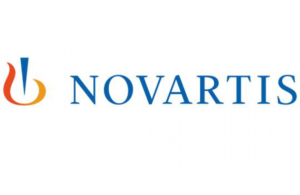 Novartis today announced the expansion of its radioligand therapy (RLT) manufacturing capabilities with a new facility in Indianapolis.
Novartis today announced the expansion of its radioligand therapy (RLT) manufacturing capabilities with a new facility in Indianapolis.
The Basil, Switzerland–based pharma giant said it has received FDA approval for commercial manufacturing in Indianapolis of its RLT therapy Pluvicto (lutetium Lu 177 vipivotide tetraxetan) to treat advanced metastatic prostate cancer.
The new 70,000-square foot facility in Indianapolis is the second of its kind for the company in the U.S. and Novartis’ largest globally.
The Indianapolis site, strategically situated in the U.S., is designed from scratch for RLT production. It promises to substantially increase supply to meet growing demands, especially in the U.S. and potentially Canada, subject to approval. The facility is equipped for future expansion, including fully automated lines — a first for the radiopharmaceutical industry.
“The intricate process of providing RLTs to patients within hours of production requires precision manufacturing expertise to bring these medicines to individuals who critically need them,” Steffen Lang, president of operations at Novartis, said in a news release.
“Adding a second U.S. RLT facility, our largest and most advanced yet, into our manufacturing network underscores our commitment to ensure a consistent and reliable experience for patients and their healthcare teams for years to come. We also recently announced plans to build our manufacturing capabilities in Sasayama, Japan and Haiyan, Zhejiang, China, as we continue to look for opportunities to further expand our worldwide reach.”
Novartis’ other U.S. facility is in Millburn, New Jersey. The site in Ivrea, Italy will continue to supply patients in and outside the U.S., while the facility in Zaragoza, Spain will solely provide RLTs for patients outside the U.S.
With four active manufacturing facilities, Novartis now has an RLT production capacity of 250,000 doses in 2024 and beyond. The company now has more than sufficient supply to treat patients within two weeks of diagnosis — important for patients with advanced cancer who may need treatment quickly.
In addition, the company says it is committed to improving access to its RLTs, Pluvicto and Lutathera (lutetium Lu 177 dotatate) by adding more treatment sites in closer proximity to patients over the coming months. Demand could continue to grow, as ongoing clinical trials may present the potential to bring Pluvicto and Lutathera to more patients in earlier lines of treatment.